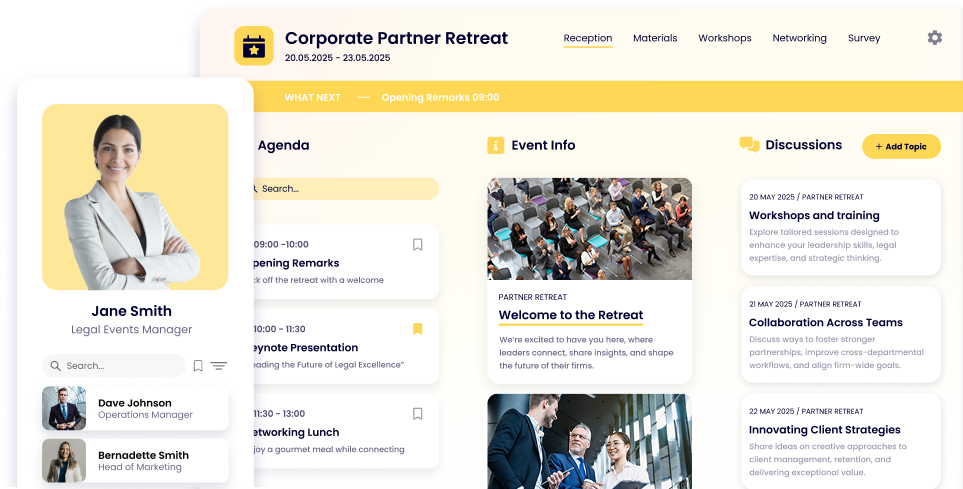Managing Corporate Travel: Essential Guide to Success

Lisa Broom | Head of Marketing

Corporate travel management is a crucial aspect of business operations, especially as companies grow and expand. It’s all about creating the systems to make business travel plans efficient, cost-effective, pleasant, and aligned with company goals.
In this guide, we show you the key strategies and tools for managing corporate travel effectively, helping you enhance your business trips and overall travel experience. We also highlight the ways that specialty software (like managing corporate travel apps) can make this a simple (or at least simpler) process.
Key Takeaways
- Understanding the role and responsibilities of a corporate travel manager
- Key considerations and components of corporate travel management
- Practical tips for planning and managing corporate travel
- Tools and technologies to streamline corporate travel management
- Advantages of implementing a corporate travel policy
- Solutions to common corporate travel management challenges
What is Corporate Travel Management?

Corporate travel management involves planning, booking, and overseeing business travel activities. It includes creating travel policies, negotiating with vendors, managing travel expenses, and ensuring traveler safety and support.
Effective travel management helps businesses control costs, enhance productivity, and improve the overall travel experience for employees.
Over 80% of business travelers say business travel leads to stronger leadership skills, increases engagement, benefits company culture, and improves problem-solving skills, among many other benefits. (Source)
What Does a Corporate Travel Manager Do?
A corporate travel manager is responsible for:
- Developing and implementing travel policies
- Coordinating with travel agencies and vendors
- Managing travel bookings and reservations
- Monitoring travel expenses and ensuring cost control
- Providing support and assistance to travelers
- Ensuring compliance with travel policies and regulations
Understanding Corporate Travel Management

Corporate travel management encompasses various aspects, including policy creation, vendor management, booking and reservations, cost control, traveler support and safety, data management and reporting, technology integration, and sustainability.
Understanding these components is essential for effective travel management. Below, we go into each, offering you perspective on these core aspects of the role.
Travel policy
A well-defined travel policy sets the guidelines for business travel. It includes rules for booking travel, expense limits, preferred vendors, and reimbursement procedures. A clear travel policy helps ensure consistency and compliance across the organization.
Vendor management
Managing relationships with travel vendors, such as airlines, hotels, and car rental companies, is crucial. Negotiating favorable rates and terms can lead to significant cost savings and improved service quality.
Booking and reservations
Efficient booking and reservation processes are vital for managing corporate travel. Utilizing travel management software or apps can streamline these tasks, making it easier for employees to book travel according to company policies.
Cost control and savings
Controlling travel costs is a primary goal of corporate travel management. This involves monitoring expenses, identifying cost-saving opportunities, and ensuring that travel spending aligns with the company’s budget.
Traveler support and safety
Providing support and ensuring the safety of travelers is a key responsibility. This includes offering assistance with travel issues, providing emergency contacts, and implementing safety protocols.
Data management and reporting
Collecting and analyzing travel data helps in making informed decisions. Travel management software can generate reports on travel expenses, compliance, and overall travel trends, aiding in the optimization of travel policies and processes.
Technology integration
Integrating technology into travel management can significantly enhance efficiency. This includes using travel management software, mobile apps, online booking tools, and travel analytics platforms. Luckily, remote management has never been easier.
Sustainability and corporate social responsibility (CSR)
Incorporating sustainability and CSR into travel policies can enhance the company’s reputation and reduce its environmental impact. This includes choosing eco-friendly travel options and implementing practices that support social responsibility.
Guide for Managing Corporate Travel
Effective corporate travel management requires careful planning and execution. But that’s a lot easier said than done.
We made learning how to manage corporate travel easy by breaking everything down into the most basic tasks.
Here’s a step-by-step guide to ensure smooth and efficient travel management for your business:
Define the purpose and goals
Corporate travel planning begins by understanding the purpose of each trip and setting clear goals is essential. This helps in planning the trip more effectively and ensuring that it aligns with business objectives. For example:
- Sales Meetings: Define what success looks like, such as securing a new contract or advancing negotiations.
- Conferences and Training: Determine the key learnings or networking objectives. If you are overlapping with corporate event planning, make sure that people on both projects are talking to each other.
- Client Visits: Outline the client engagement goals and expected outcomes.
By setting specific, measurable goals for each trip, you can better assess the trip’s ROI and ensure it contributes to your overall business strategy.
Set a budget
Establishing a travel budget helps in controlling costs and avoiding overspending. The budget should cover all travel-related expenses, including:
- Transportation: Flights, trains, car rentals, and local transportation.
- Accommodation: Hotels, motels, or short-term rentals.
- Meals and Incidentals: Daily allowances for meals and other minor expenses.
- Miscellaneous Expenses: Wi-Fi charges, tips, and other unforeseen costs.
Creating a detailed budget not only helps in financial planning but also sets clear spending limits for travelers, reducing the risk of unexpected expenses.
Create a planning team
Forming a team to oversee travel planning can streamline the process. The team should include representatives from various departments to ensure that all travel needs are addressed. Consider the following roles:
- Travel Coordinator: Manages overall travel arrangements and ensures compliance with travel policies.
- Finance Representative: Monitors the budget and handles expense approvals.
- HR Representative: Ensures traveler safety and handles any personnel issues.
- Department Heads: Provide input on travel needs and goals specific to their teams.
Having a dedicated planning team helps in distributing the workload and ensures that all aspects of travel are covered comprehensively.
Additional tips for effective corporate travel management
- Leverage Technology: Use corporate travel management software to automate booking, expense tracking, and reporting. This can save time and reduce errors.
- Negotiate with Vendors: Establish relationships with preferred airlines, hotels, and car rental companies to secure corporate rates and benefits.
- Provide Training for Travelers: Educate employees on travel policies, safety protocols, and expense reporting procedures.
- Implement a Feedback System: Collect feedback from travelers to continuously improve travel policies and processes.
- Emergency Preparedness: Have a plan in place for emergencies, including contacts for local support and procedures for dealing with travel disruptions.
Checklist for corporate travel planning

Creating a checklist can help in organizing travel plans and ensuring that all necessary tasks are completed. A sample checklist might include:
- Defining trip objectives
- Selecting travel dates
- Booking flights and accommodations
- Arranging transportation
- Preparing travel documents
- Setting up meetings and appointments
- Communicating travel details to travelers
- Monitoring travel expenses
Download our Free Checklist for Corporate travel planning
Corporate Travel Management Challenges and Solutions
All corporate management solutions require understanding and the right tools. And managing corporate travel is no different. Here’s how to overcome them:
How to overcome corporate travel management challenges
- Compliance: Ensure adherence to travel policies by providing clear guidelines and regular training.
- Cost Control: Use travel management software to monitor expenses and identify cost-saving opportunities.
- Traveler Safety: Implement comprehensive safety protocols and provide 24/7 support for travelers.
- Data Management: Utilize travel analytics tools to collect and analyze travel data for better decision-making.
- Vendor Relationships: Maintain strong relationships with vendors to negotiate better rates and services.
How to choose a travel management solution
Selecting the right travel management solution is crucial for streamlining travel processes. For many companies, that means a managing business travel app.
Consider the following factors:
- Functionality: Ensure the corporate travel management software offers features that meet your travel management needs.
- Ease of Use: Choose a user-friendly platform that simplifies booking and expense reporting.
- Integration: Ensure the solution integrates seamlessly with other systems used by your organization.
- Support: Look for a solution that offers reliable customer support and training resources.
Corporate Travel Management Tools & Technologies

Technology plays a vital role in modern corporate travel management. By leveraging various tools and technologies, businesses can streamline their travel processes, enhance compliance, and reduce costs.
It’s especially vital to get effective business travel management software if you don’t have the money to build a team.
Here are some essential tools and technologies:
Software solutions for corporate travel management
Using specialized software can streamline travel management processes, reduce costs, and improve compliance. These management solutions often offer comprehensive features such as:
- Centralized Booking Systems: Allowing travel managers to book flights, hotels, and transportation from a single platform.
- Automated Approvals: Streamlining the approval process for travel requests and expenses, reducing administrative overhead.
- Compliance Monitoring: Ensuring that all travel bookings comply with the company’s travel policies and guidelines.
- Reporting and Analytics: Providing detailed reports on travel expenses, compliance rates, and travel patterns.
Fliplet offers a comprehensive travel management solution that can help you manage the entire travel process efficiently, ensuring that all aspects of corporate travel are covered.
Travel management platforms
Corporate travel software provides end-to-end solutions for booking, managing, and reporting travel. They often include features like:
- Expense Tracking: Allowing travelers and managers to track travel expenses in real-time.
- Policy Enforcement: Ensuring that all travel arrangements adhere to company policies.
- Travel Analytics: Offering insights into travel spend, vendor performance, and traveler behavior to optimize travel programs.
- Integrated Itineraries: Combining flight, hotel, and car rental bookings into a single itinerary for ease of access and management.
Expense management tools
Expense management tools help in tracking and managing travel expenses. These tools facilitate:
- Easy Submission: Enabling travelers to submit expense reports electronically, often via mobile apps.
- Automated Approvals: Streamlining the approval process for expense reports, reducing the time and effort required.
- Compliance Assurance: Ensuring that expenses are within policy limits and providing automatic alerts for non-compliant expenses.
- Reimbursement Processing: Speeding up the reimbursement process for employees, improving satisfaction and compliance.
Online booking tools
Online booking tools enable travelers to book flights, hotels, and rental cars according to company policies. They often include features such as:
- Real-Time Availability: Allowing travelers to see real-time availability for flights, hotels, and rental cars.
- Price Comparisons: Enabling travelers to compare prices across multiple providers to find the best deals.
- Booking Confirmations: Providing immediate confirmation of bookings, reducing uncertainty and ensuring that travelers have the necessary information.
- Preferred Vendor Integration: Ensuring that bookings are made with preferred vendors to leverage negotiated rates and benefits.
Mobile travel apps
Mobile apps provide travelers with access to booking tools, itineraries, and support services on the go. These apps can:
- Send Notifications: Alerting travelers to flight changes, cancellations, and other important updates.
- Access Itineraries: Allowing travelers to view and manage their itineraries from their mobile devices.
- Provide Support: Offering access to travel support services, including emergency contacts and assistance.
- Expense Reporting: Enabling travelers to capture and submit expenses while on the road.
Virtual payment solutions
Virtual payment solutions streamline the payment process for travel expenses, reducing the need for physical credit cards and simplifying expense tracking. These solutions offer:
- Secure Payments: Ensuring secure and fraud-proof payment methods for travel expenses.
- Expense Integration: Automatically integrating payment data with expense management systems for seamless tracking and reporting.
- Budget Control: Allowing managers to set spending limits and monitor expenses in real-time.
- Reduced Administrative Burden: Eliminating the need for physical receipts and manual reconciliation processes.
Travel analytics tools
Travel analytics tools help in analyzing travel data to identify trends, monitor compliance, and optimize travel policies. These tools provide:
- Detailed Reporting: Offering comprehensive reports on travel expenses, vendor performance, and traveler behavior.
- Trend Analysis: Identifying patterns and trends in travel data to help optimize travel policies and spending.
- Compliance Monitoring: Tracking adherence to travel policies and identifying areas for improvement.
- Cost Optimization: Highlighting opportunities for cost savings through vendor negotiations, policy adjustments, and better travel planning.
Additional tools and technologies
- Communication Platforms: Tools like Slack or Microsoft Teams can facilitate communication between travelers and travel managers, ensuring quick resolution of any issues.
- Document Management Systems: Storing and managing travel-related documents, such as itineraries, receipts, and travel policies, in a centralized digital repository.
- Risk Management Tools: Assessing travel risks and providing real-time alerts and updates on safety and security issues.
By integrating these tools and technologies into your corporate travel management processes, you can achieve greater efficiency, compliance, and cost savings, ultimately enhancing the overall travel experience for your employees.
What Advantages Does a Corporate Travel Policy Offer?
You need to implement a corporate travel policy for top corporate travel management. These offer numerous benefits for both businesses and employees.
Advantages for businesses
- Cost Savings: A well-defined travel policy helps control costs and prevent overspending.
- Improved Compliance: Clear guidelines ensure that employees adhere to travel policies and procedures.
- Enhanced Efficiency: Streamlined processes reduce the time and effort required for travel planning and management.
- Better Vendor Relationships: Consistent use of preferred vendors can lead to better rates and services.
Advantages for employees
- Clarity and Consistency: Employees know what is expected of them and what they can expect in return.
- Support and Safety: Policies include provisions for traveler support and safety, ensuring a positive travel experience.
- Reduced Stress: Clear guidelines and streamlined processes make travel planning less stressful.
How to Implement an Effective Corporate Travel Management Program
Implementing an effective travel management program requires careful planning and execution. Here are some tips for managing corporate travel:
- Develop Clear Policies: Create comprehensive travel policies that cover all aspects of business travel.
- Communicate Policies: Ensure that all employees are aware of and understand the travel policies.
- Use Technology: Use a corporate event app and tools to streamline processes and improve compliance.
- Monitor and Review: Regularly review travel policies and processes to identify areas for improvement.
- Provide Support: Offer 24/7 support for travelers to address any issues that may arise.
Ready to Transform Your Corporate Travel Management?
Effective corporate travel management can significantly enhance business operations and employee satisfaction. By implementing the strategies and tools outlined in this guide, you can optimize your travel management processes and achieve better results.
Learn more about how Fliplet’s corporate event app can help your business streamline travel processes and improve the attendee experience during your corporate events.
Book a free discovery call to learn how our platform can help you.

FAQs
What are the benefits of using corporate travel management software?
Corporate travel management software streamlines travel processes, reduces costs, and improves compliance. It offers features like booking tools, expense tracking, and travel analytics, making it easier to manage business travel.
How do I ensure compliance with corporate travel policies?
Ensure compliance by creating clear and comprehensive travel policies, communicating them effectively to employees, and using travel management software to monitor and enforce compliance.
What factors should I consider when selecting a travel management company (TMC)?
Consider factors such as the TMC’s experience, range of services, technology offerings, customer support, and ability to negotiate favorable rates with vendors.
How can businesses track and manage travel expenses effectively?
Use expense management tools and travel management software to track and manage travel expenses. These tools allow for easy submission, approval, and reporting of expenses, ensuring compliance with travel policies.
What strategies can improve traveler safety during business trips?
Implement comprehensive safety protocols, provide 24/7 support for travelers, and use travel management software to monitor travel plans and address any issues that may arise.
How can mobile apps simplify business travel management?
Mobile apps provide travelers with access to booking tools, itineraries, and support services on the go. They can also send notifications and updates about travel plans, making it easier to manage travel.
How can technology help corporate travel planning and management?
Technology can streamline travel planning and management by automating processes, improving compliance, and providing insights through travel analytics. Using travel management software, mobile apps, and online booking tools can enhance efficiency and control costs.




